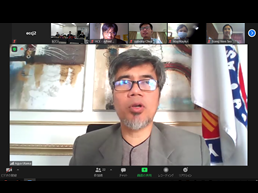
Holding of ECAP22 training as part of the FY2020 energy conservation support project for ASEAN countries on Feb. 2021
Under the instruction and financial support of the Ministry of Economy, Trade and Industry (METI) (in the project for contributing to the rational use of energy in developing nations and the EE&C capacity building program), the Energy Conservation Center, Japan (ECCJ) held ECAP22 training in an online format during the three-day period from February 8 to 10, 2021. Previously, activities were implemented in a format where persons from each ASEAN country were invited to visit Japan, however due to the impact of COVID-19 the invited training in the current fiscal year was implemented online.
(1) Presentations were made and reports submitted relating to the results of energy audits conducted by the trainees in their own countries.
(2) ECCJ gave lectures on developing energy management systems and methods, and on energy conservation technologies for heat and electricity-related facilities.
(3) ECCJ held examinations to check the participants’ degree of understanding, and made overall evaluations.
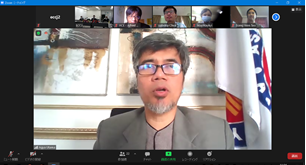 | 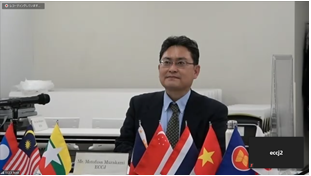 |  |
| Opening greetings by ACE | Opening greetings by ECCJ | Lecture on electricity-related technologies |
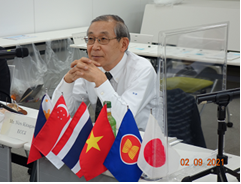 | 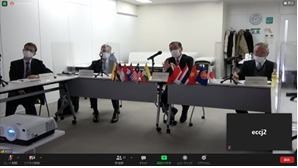 | 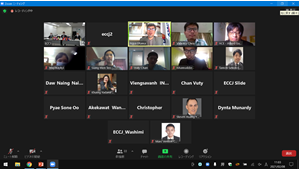 |
| Lecture on heat-related technologies | View of ECCJ participants | View of participants in each ASEAN country |
ECAP22 training, which was previously conducted as invited training in Japan, was implemented in an online format as part of the Scheme 2 Program of the “FY2020 EE&C Capacity Building Program for ASEAN Countries”. A total of 16 persons took part in the training, comprising 15 qualified energy manager trainer candidates from each ASEAN country together with one person from the ASEAN Centre for Energy (ACE). During the three-day period from February 8 to 10, the trainees reported the results of energy audits that they had implemented, lectures were given by ECCJ on energy management and heat and electricity technologies, and examinations were held to confirm the participants’ degree of understanding.
(1) Out of the 16 participants, with the exception of those who were unable to conduct audits due to the impact of COVID-19, 13 of the participants passed the examinations and became certified as trainers. Among these trainers, nine were awarded for their excellent results.
(2) High evaluation was given to the participants who employed various equipment to complete their energy audits under the guidance of previously certified trainers in their own countries even under the difficult conditions imposed by the impact of COVID-19.
(3) Regarding the participants who could not meet the deadline this time, ECCJ plans to evaluate the reports that they will submit as soon as they are able to conduct the energy audits in the current fiscal year and next fiscal year and intends to award additional certification as trainers.
(4) To compensate for the short training period of three days, ECCJ employed various methods such as distributing lecture materials with added narrations in advance and using chat functions to provide follow-up for uncertain points during the online examinations.
(5) Going forward, ECCJ intends to expand the human resource capacity training to a wider range by using the format of jointly using online training to take advantage of allowing participation by many persons, rather than only holding invited training in Japan

